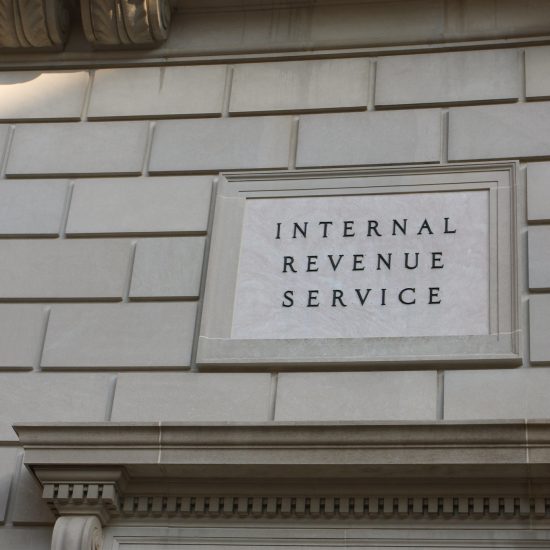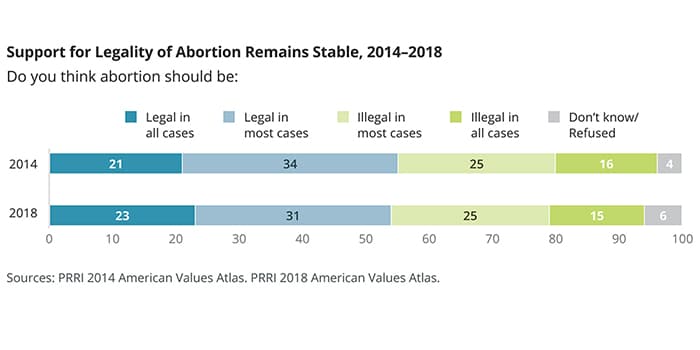
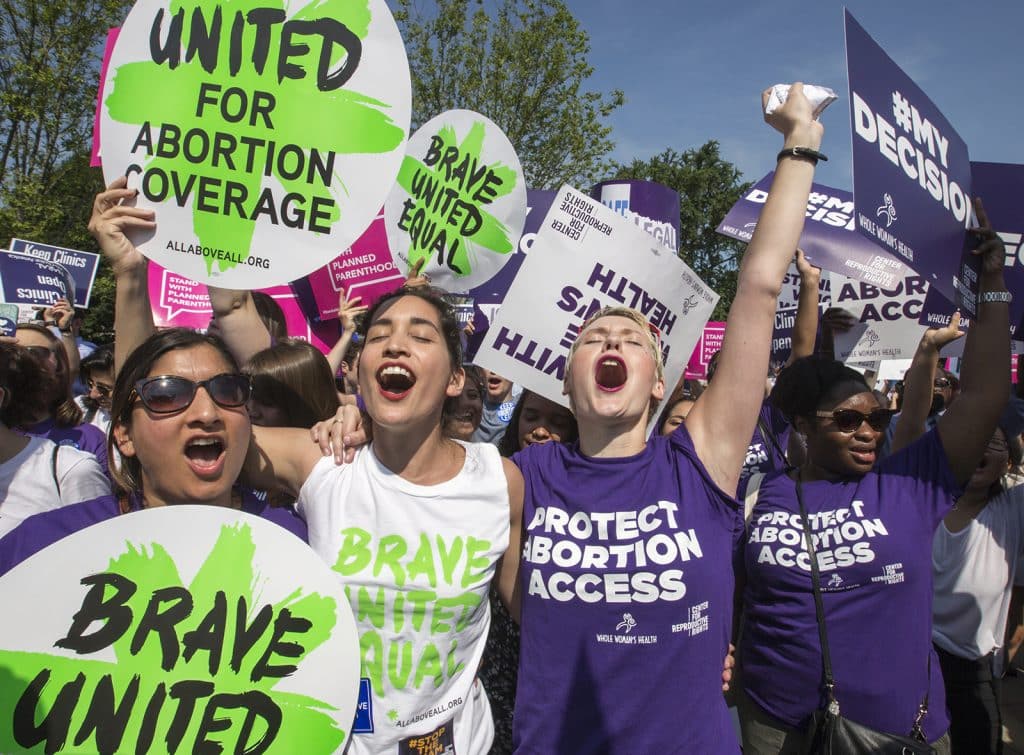
Abortion rights activists in front of the US Supreme Court after the justices struck down a strict Texas anti-abortion restriction law known as HB2, on June 27, 2016. (AP Photo/J. Scott Applewhite, File)
(RNS) — In no state in the U.S. does even one-quarter of the population say abortion should be illegal in all cases, a new survey shows.
The report, released Tuesday (Aug. 13) by Public Religion Research Institute, shows that in five states, at least 20% of the population believes abortion should be legal in all cases: Louisiana (23%), Mississippi (22%), Arkansas (21%), Tennessee (21%), Nebraska (21%), North Dakota (20%) and Kentucky (20%).
But even in Alabama and Missouri, where laws have recently been passed to make abortion illegal with practically no exceptions, fewer than a fifth of the population says abortion should be illegal all the time. In Alabama just 16% opposes abortion at all times, while 19% of Missourians hold that position. The anti-abortion laws are facing court challenges in both states.
“These results demonstrate that the Republican-controlled legislatures who have passed state laws that amount to a virtual ban on abortion are out of touch not just with Americans overall but with residents of their own states and members of their own party,” said PRRI CEO and founder Robert P. Jones in an announcement of the survey results. “Few Americans, even in the most conservative states in the country, believe that abortion should be banned outright,” he continued.
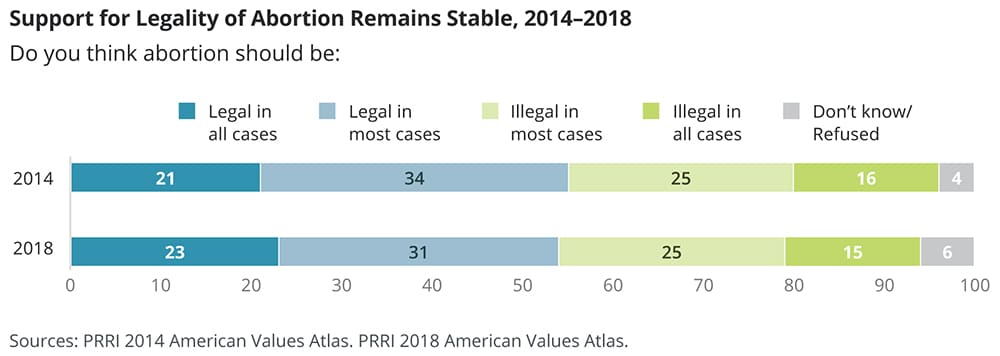
“Support for Legality of Abortion Remains Stable, 2014-2018” Graphic courtesy of PRRI
These state-by-state findings come at a time when national views on abortion have remained stable. In 2018, 15% of those surveyed said it should be illegal in all cases, according to PRRI, compared to 16% in 2014. In 2018, 23 percent of respondents said abortion should be legal in all cases, compared to 21 percent four years earlier.
In 22 states, less than half of those surveyed say abortion should be legal all or most of the time. In 12 of those states, a majority say abortion should be illegal.
The study’s researchers found that more than three-quarters of Americans surveyed said their opinion about abortion had remained unchanged over the last five years.
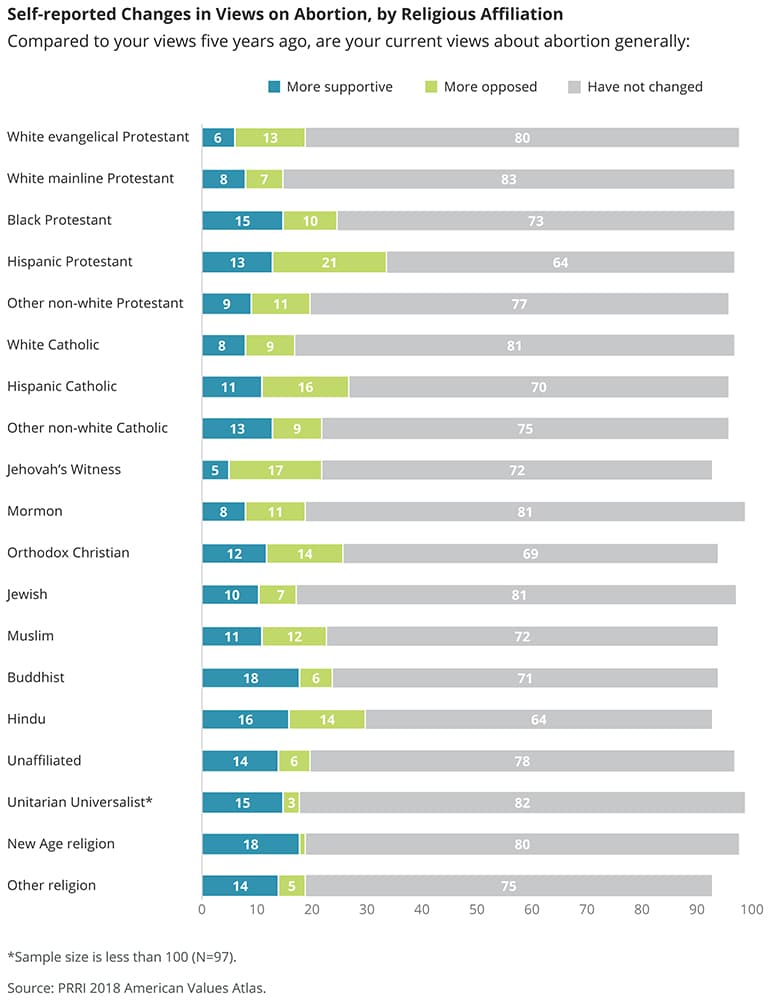
“Self-reported Changes in Views on Abortion, by Religious Affiliation” Graphic courtesy of PRRI
Hispanic Protestants (21%) and Hispanic Catholics (16%) were the two religious groups that most reported having become “more opposed” to abortion. Buddhist (18%) and New Age adherents (18%) were among those that most reported becoming “more supportive.”
Members of conservative religious groups were more likely to favor making abortion illegal in all or most cases, including white evangelical Protestants (65%); Jehovah’s Witnesses (68%); Mormons (66%); and Hispanic Protestants (58%).
But a majority of other Protestant groups, including white mainline Protestants (59%) and black Protestants (56%), say abortion should be legal in all or most cases.
Catholics are almost equally divided, with 4 in 10 against making abortion legal in all or most cases and a similar percentage against illegality in all or most instances.
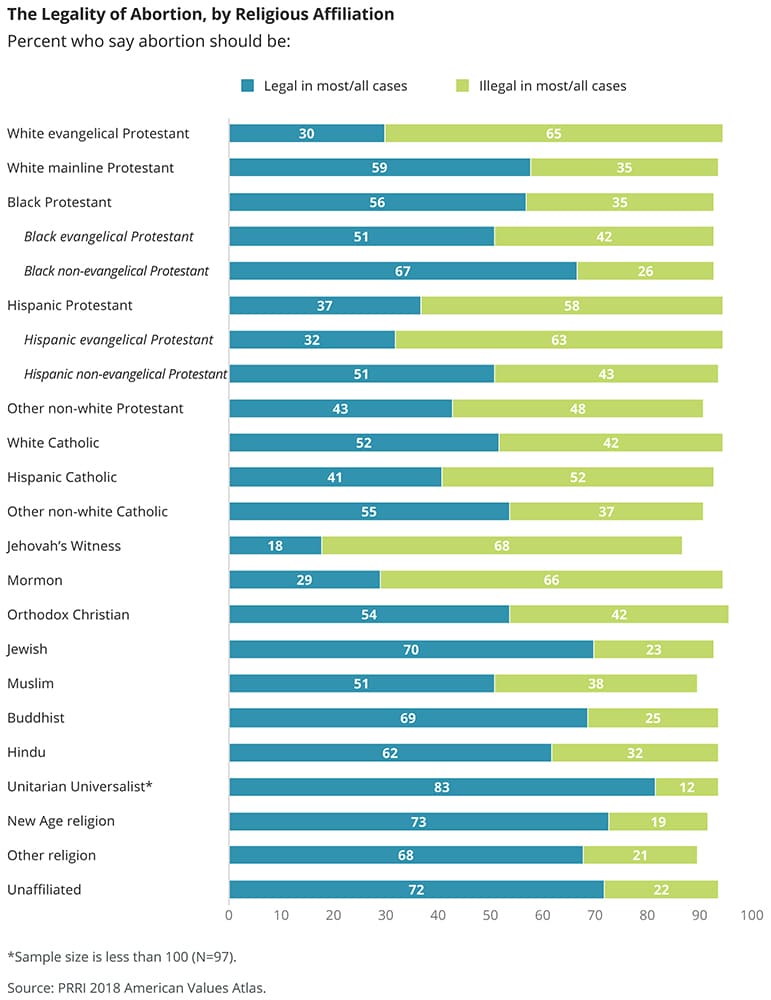
“The Legality of Abortion, by Religious Affiliation” Graphic courtesy of PRRI
But when race and ethnicity are considered, there are more striking differences of opinion among Catholics.
For example, a slim majority of white Catholics (52%) supports the legality of abortion, while only 41% of Hispanic Catholics do.
Among Hispanic Protestants, 63% who identify as evangelical oppose legal abortion, compared to 43% of their non-evangelical counterparts. And among African American Protestants, 51% of those who identify as evangelical generally support legal abortion compared to 67% of black non-evangelicals.
One-fifth (21%) of Americans say a political candidate’s abortion view is a “deal-breaker,” with a higher percentage of those opposing legal abortion (27%) saying only a candidate who shares their view would get their vote. Eighteen percent of those supporting legal abortion consider it a deal-breaking issue.
Hispanic Protestants, white evangelical Protestants and Jewish Americans were the religious groups with the highest proportion — at just under 3 in 10 — who say they would only vote for a candidate who shares their abortion view.
The survey questioned 40,292 respondents between March 14, 2018 and Dec. 16, 2018 and had an overall margin of error of plus or minus 0.5 percentage points. The margin of error for respondents of different religious affiliation varied with sample sizes. It was plus or minus 1.2 percentage points for white evangelical and white mainline Protestants and plus or minus 7 percentage points for followers of New Age religion.
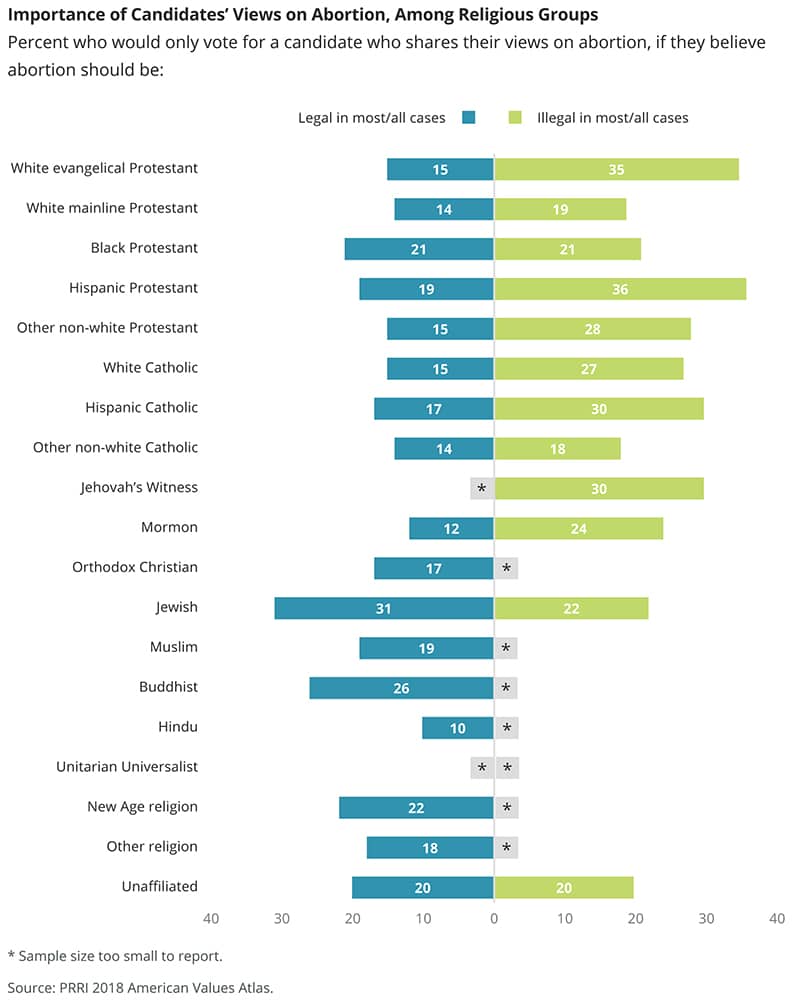
“Importance of Candidates’ Views on Abortion, Among Religious Gorups” Graphic courtesy of PRRI






